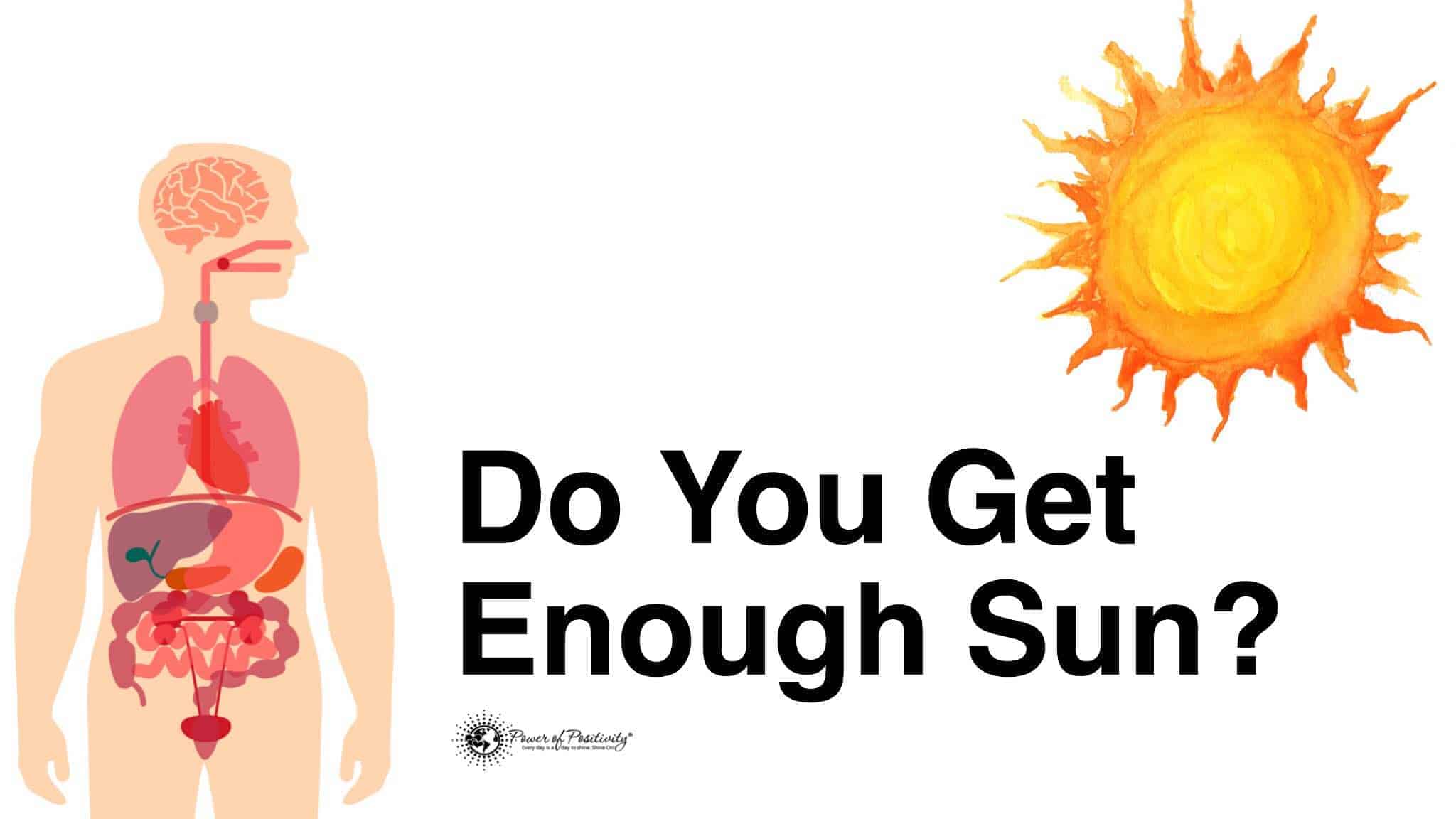Many people seem to avoid the sun due to a fear of skin cancer, but not getting enough sun could possibly do even more damage than sunbathing for hours at a time.
When we lived closer to nature, we would spend hours a day in the sun doing activities such as gardening, harvesting fruits and vegetables, hunting for food, working on shelters, etc. Nowadays, we barely spend any time outdoors since most of us work office jobs and can’t get away to spend adequate time in the sun. Most people don’t realize the toll that this takes on their health, as the sun provides vital nutrients and helps to keep our bodies functioning properly.
These Things Happen To Your Body When You Don’t Get Enough Sun
Recent research from Stanford shows a strong correlation between the growth of breast tumors in mice and a lack of Vitamin D.
“Although much more research needs to be done, research from our lab and others suggests that people at risk for breast cancer should know their vitamin D levels and take steps to correct any deficiencies,” said Brian Feldman, MD, PhD, assistant professor of pediatrics.
While their study mainly focused on mice and mouse cells, the researchers discovered that in a small study of 34 breast cancer patients, their levels of Vitamin D inversely correlated with the levels of ID1 protein in their tumors. They also found that a Vitamin D metabolite directly controls the expression of the ID1 gene in the breast cancer cells.
In one of their studies, the researchers found that mice given a diet deficient in vitamin D developed sizable tumors an average of seven days earlier than the other mice, and after six weeks, the tumors grew to a significantly larger size in comparison to the mice who had sufficient Vitamin D levels.
“Our study shows that a deficiency in vitamin D levels, or an inability of tumor cells to respond appropriately to the presence of vitamin D, is sufficient to trigger non-metastatic cancer cells to become metastatic,” said Feldman. “It’s enough to significantly accelerate tumor progression in our mouse model. Further studies are warranted, but this direct association between vitamin D levels and ID1 expression is very interesting to us.”
In another study published in the Journal of Internal Medicine that included 29,518 Swedish women, researchers found that over the course of 20 years, the women who had more sun exposure had a longer life expectancy, as well as decreased risk of developing heart disease and cancer.
While more research needs to be done on this subject, this study suggests that Vitamin D could stave off dangerous diseases and even prolong life. Of course, laying out in the sun for hours at a time can damage your health considerably, but this research implies that avoiding the sun might do even more harm than being exposed to UV radiation for extended periods of time.
In another study published in the same journal, researchers found that women who avoid sun exposure have twice the likelihood of dying compared to women who get adequate sun exposure.
SunshineVitamin.org says, “Humans make 90 percent of our vitamin D naturally from sunlight exposure to our skin–specifically, from ultraviolet B exposure to the skin, which naturally initiates the conversion of cholesterol in the skin to vitamin D3.”
While you can obtain Vitamin D in some foods, such as mushrooms, it will never replace the large amount you can absorb directly from the sun. We have an ever-growing number of mental and physical diseases in this world today, and we get less sunlight than ever before. So, maybe we all just need a little more sun in our lives in order to heal.
Related article: 7 Signs of a Vitamin D Deficiency
You don’t need much sunlight per day in order to get an adequate amount of Vitamin D – just going for a walk for 30 to 45 minutes can do wonders for your mental and physical well-being! Unfortunately, many people suffer from a Vitamin D deficiency today due to inadequate sunlight, as we spend more time indoors than ever before.
For more information (and inspiration to get more sunlight), check out this video below to find out what would happen if you stopped going outside!
Related article: 5 Things Our Planet Is Trying To Tell You

















